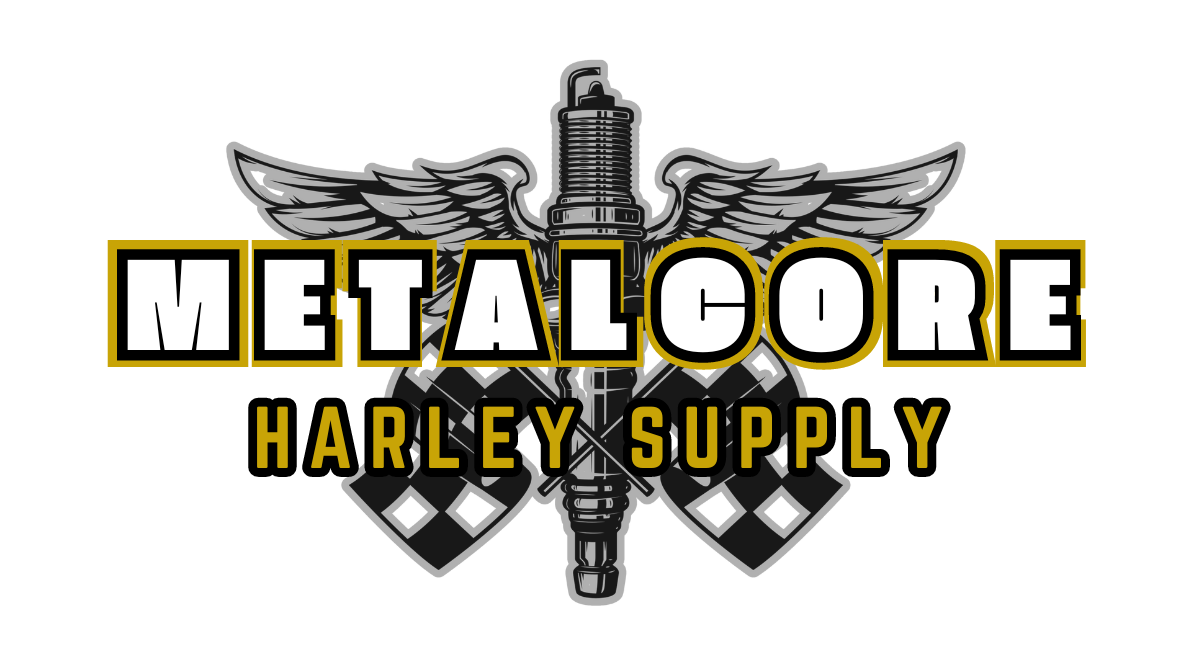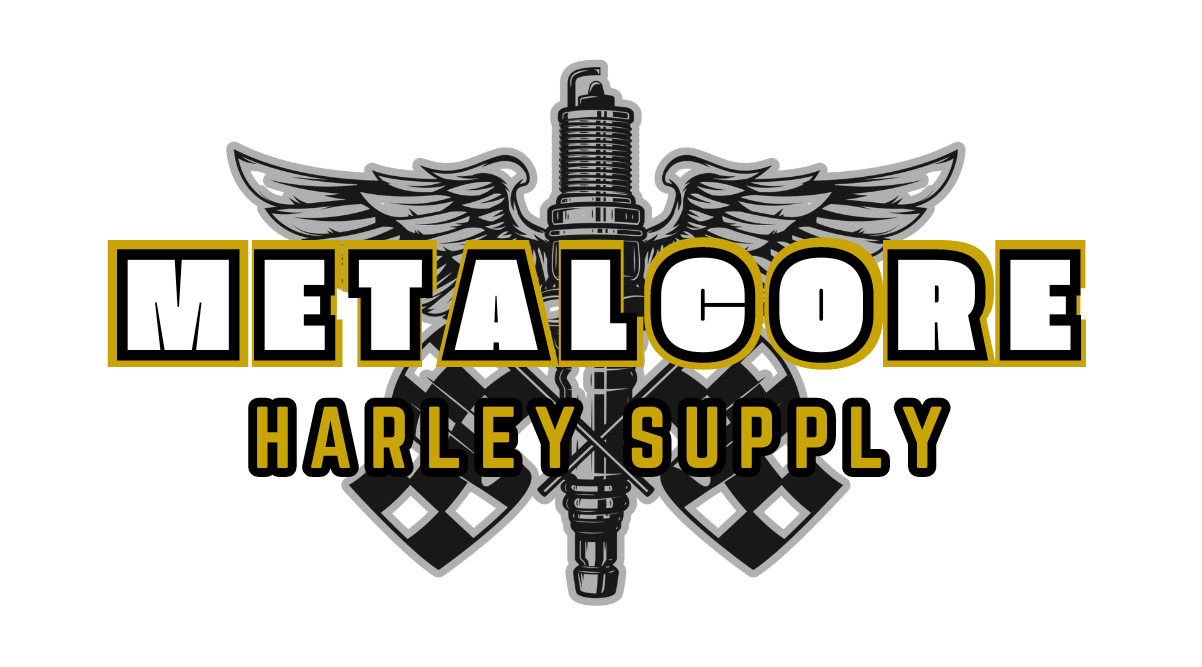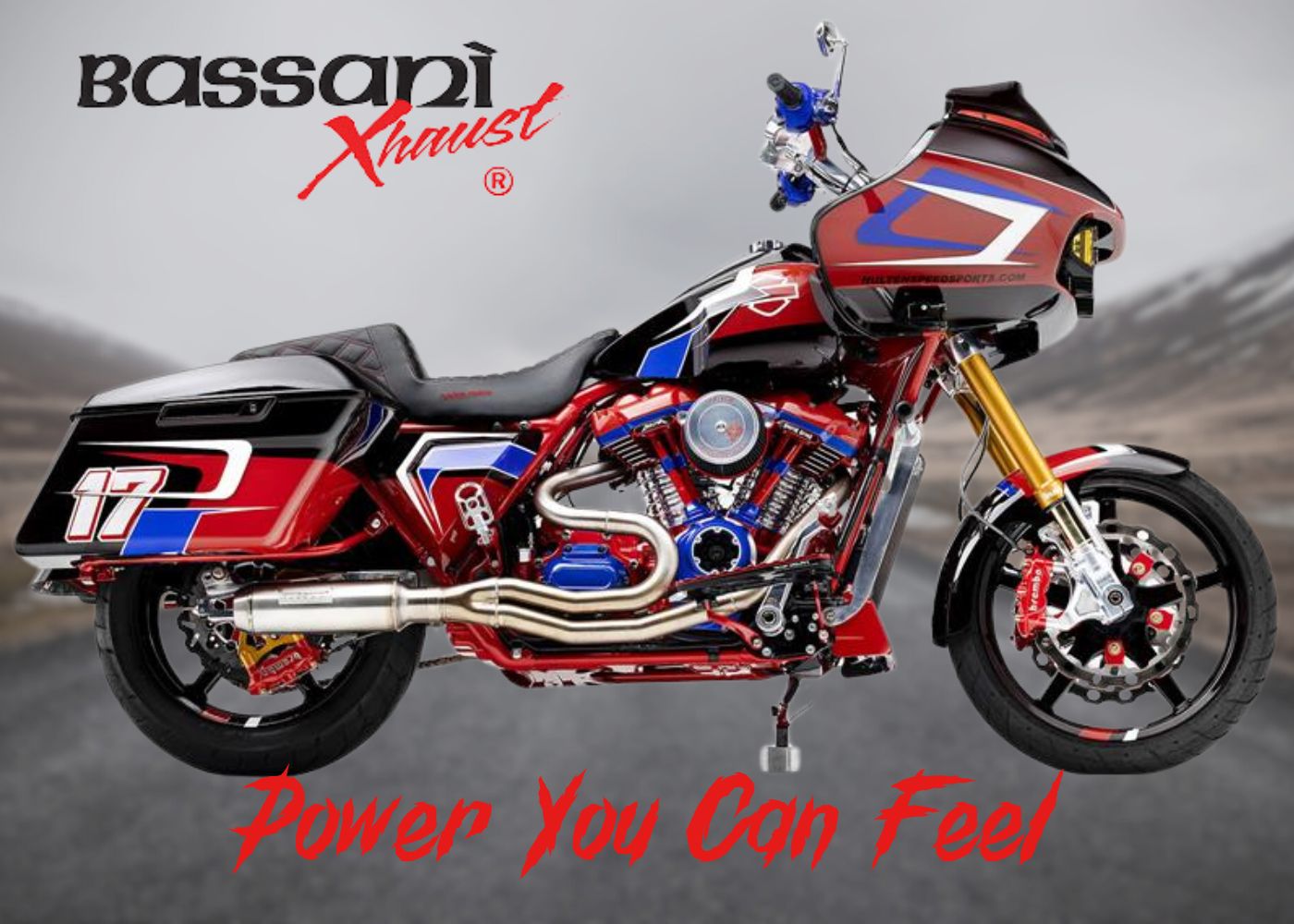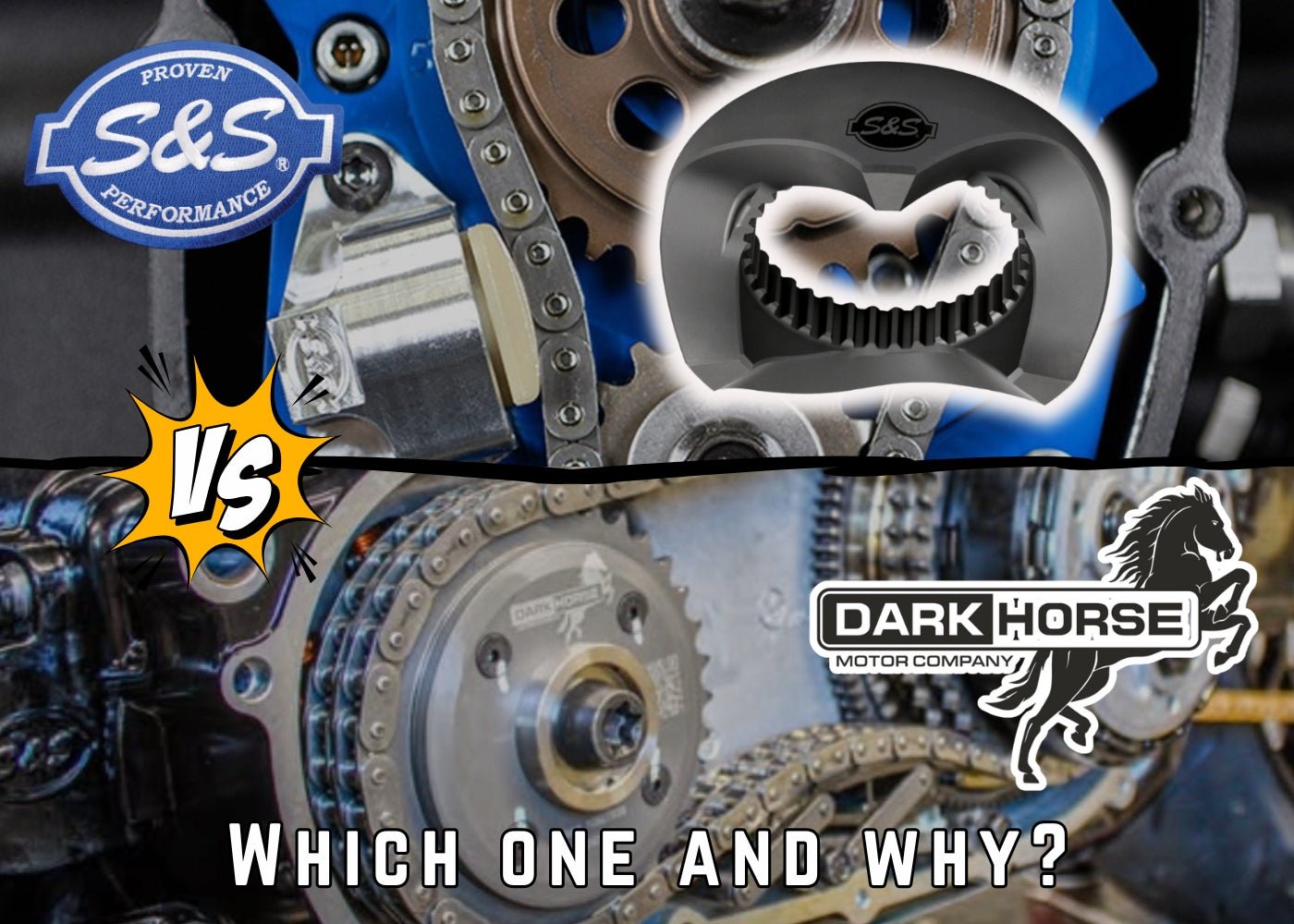Chain vs. Gear Driven Camshafts in Harley Twin Cam Motors

- Introduction to Camshaft Mechanism
- Understanding Chain Driven Camshafts
- Exploring Gear Driven Camshafts
- Comparison of Performance and Durability
- Installation and Maintenance Considerations
- The Advantages of Hydraulic Cam Chain Tensioners Over Spring-Loaded Tensioners
- Conclusion
Introduction to Camshaft Mechanisms
When fine-tuning your Harley Davidson's Twin Cam engine, the choice of camshaft drive mechanism is not just a technical decision but a deeply personal one. Whether cruising on weekends or preparing for a race, understanding the mechanics behind chain-driven and gear-driven camshafts can significantly enhance your bike’s performance and tailor it perfectly for the journey ahead.
Understanding Chain Driven Camshafts
Imagine the chain on an old bicycle—that's essentially how chain-driven camshafts operate. They use a similar mechanism to link the crankshaft to the camshaft, synchronizing your engine's intake and exhaust valves. The first time I replaced a worn chain, the bike's performance noticeably improved. Generally, chain-driven camshafts are quieter and less expensive than gear-driven variants but require more attention to avoid stretch and wear, which can adversely affect your timing and engine performance.

Exploring Gear Driven Camshafts
Gear-driven camshafts are the robust workhorses of engine timing. Without relying on chains, these camshafts use sturdy gears to maintain precise camshaft timing. Although they may add a slight whine to your engine’s hum, the trade-off is beneficial for the exactness they offer, especially when pushing your bike to its limits during track days. They are durable and typically demand less maintenance once properly set up.

Comparison of Performance and Durability
From a performance standpoint, gear-driven camshafts reign supreme. They maintain exact timing regardless of how aggressively you rev the engine, crucial not just for achieving high speeds but also for maintaining engine health. The immediate power response and precision timing provided by gear-driven cams are unmatched. In terms of durability, gear-driven camshafts also take the lead, provided they are installed correctly and all specifications are meticulously followed.
On the other hand, while chain-driven camshafts might start off smoothly, they can degrade over time as the chain wears, leading to "slop" or play that disrupts engine timing and causes various performance issues. Replacing a stretched chain mid-season is a well-known headache among enthusiasts.
Installation and Maintenance Considerations
Switching to gear-driven camshafts requires careful installation—you need to align the gears precisely, which might necessitate special tools or professional help. The crank's runout must be considered; excessive wobble can prevent proper gear meshing, potentially leading to severe damage and metal shavings dispersing through the engine. Once installed correctly, gear-driven camshafts are relatively low-maintenance.
With chain-driven systems, it’s crucial to monitor the chain and tensioner regularly. Detecting early signs of wear can prevent more significant issues down the road. Wondering how often to check? While some riders may need to replace a cam chain tensioner as early as 10,000 miles, others might reach over 40,000 miles. A good rule of thumb is to inspect the system periodically to ensure optimal performance.
The Advantages of Hydraulic Cam Chain Tensioners Over Spring-Loaded Tensioners

Hydraulic vs. Spring-Loaded Tensioners
In the evolution of Harley Twin Cam motors, the shift from spring-loaded to hydraulic cam chain tensioners marked a significant improvement in reliability and maintenance requirements. Spring-loaded tensioner were used in earlier Twin Cam models from 1999 through 2005 on Dynas, and 1999 through 2006 Touring Models, and relied heavily on spring pressure to maintain chain tension. This design can lead to excessive wear and frequent replacements due to the constant high pressure exerted on the tensioner pads.
Hydraulic tensioners, introduced in later models, incorporate a light spring that initially takes up the slack in the chain, with a hydraulic component acting as a damper to prevent the tensioner from retracting. This setup not only reduces the wear and tear on the tensioner itself but also provides a more consistent tension throughout the engine's operation.
Benefits of Hydraulic Tensioners
-
Reduced Wear and Tear: The hydraulic element in these tensioners ensures that the pressure against the chain is more evenly distributed, which significantly reduces the rate of wear on both the chain and the tensioner pad.
-
Enhanced Durability: By employing a roller chain that rolls over the tensioner rather than just rubbing against it, and by eliminating outer cam bearings in favor of bushings, the updated cam plate and tensioner design enhance overall durability and stability of the engine's timing mechanism.
-
Consistent Performance: Hydraulic tensioners offer a more consistent performance by maintaining optimal tension at all times, regardless of the engine's operating conditions. This consistency helps in preventing timing issues and potential engine damage.
-
Longer Service Intervals: With less wear and more stable performance, hydraulic tensioners generally require less frequent checks and replacements, allowing for longer intervals between service appointments.
Conclusion
Choosing between chain-driven and gear-driven camshafts for your Harley Twin Cam motor ultimately depends on your priorities and what you expect from your engine. If you value longevity, precision, and are willing to handle a bit of extra noise and upfront cost, gear-driven camshafts are the ideal choice. For those preferring a quieter ride and less initial expense, chain-driven camshafts may be suitable, especially when enhanced with hydraulic tensioners for improved reliability and reduced maintenance.
This detailed examination of camshaft technologies illustrates the significant role of innovations like hydraulic tensioners in advancing motorcycle performance and reliability, underscoring the importance of choosing the right system for your specific riding needs and maintenance habits.
- Shop our selection of Bagger / Touring Twin Cam Engine Internals - Click Here
- Shop our selection of Dyna Twin Cam Engine Internals - Click Here





Leave a comment
This site is protected by hCaptcha and the hCaptcha Privacy Policy and Terms of Service apply.